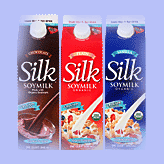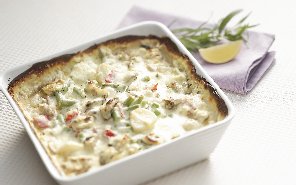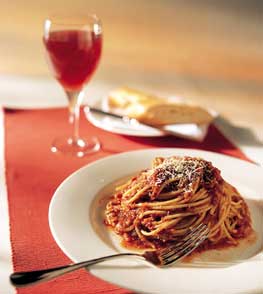
After a quick trip to the doctor’s office for my Neulasta injection (the drug that fights the chemo drugs’ suppression of white blood cells), I return home for a meeting with Lynn, a member of our church who’s a licensed dietician and counselor. She’s offered to help me look at some dietary issues.
Lynn sits down with me in our living room, takes out a pad and begins asking questions about my dietary habits and preferences – both before I began treatment, and in the last day or two as I’ve been starting to experience the chemotherapy side effects.
I confess some of my past sins – too much fast food, a fondness of potato chips and late-night ice cream snacks, and overeating generally. These have led to problems with obesity that have plagued me all my life. I’ve never been a binge eater, but as a baby-boomer child I so internalized my Depression-era parents’ strictures about cleaning my plate that I’ve tended to keep eating till well past the point of fullness. But now is not the time to address those problems. The goal of a chemotherapy diet is to maintain weight, because unhealthy weight loss is such a common result of the chemo medicines themselves (not to mention the feelings of nausea that suppress appetite).
Actually, if I do manage to lose some weight as a result of all this, that would probably be the only thing that could be said in favor of undergoing the rigors of chemotherapy. (I remember reading somewhere about a cancer survivor who used to joke about her very successful $30,000 diet program.) But Lynn and I are agreed – the immediate health concerns of maintaining caloric intake, protein and vitamins are paramount.
Vanessa, the nurse in Dr. Lerner’s office who gave Claire and me our orientation to chemotherapy, touched on some dietary issues – mostly around subjects like preventing mouth sores and avoiding infections. I’ve been following her instructions of using a homemade salt, baking soda and water mouthwash six times daily, and am ready to cut out orange juice and other acidic foods at the first sign of sores. I’m also avoiding all mouthwashes that contain alcohol, and have switched to a soft-bristled toothbrush. Vanessa also instructed that, in times when my white blood cell count is down, I should follow standard traveler’s instructions for eating raw fruit in tropical countries – eat only what fruit you can peel. In times of severe stomach upset or diarrhea, Vanessa recommends the “BRAT” diet – bananas, rice, applesauce and toast.
 Lynn’s advice is more comprehensive, and oriented to the day-to-day decisions that need to be made in the supermarket and the kitchen. She starts with my past eating patterns, and encourages me to build on my strengths. I’ve never been a breakfast-skipper, for example. Since – in the past few days, at least – I’ve found that my appetite is strongest in the morning, she encourages me to start with a big breakfast. As for the rest of the day, she encourages me to eat frequent, smaller meals – keeping a little something in my stomach all the time, to prevent queasy feelings. I also need to minimize fatty foods that are harder to digest. Lynn explains that dairy products can also be hard to deal with in times of nausea and diarrhea, so she encourages me to try soy milk instead. Yogurt is OK, too, as long as the container says “active yogurt cultures.”
Lynn’s advice is more comprehensive, and oriented to the day-to-day decisions that need to be made in the supermarket and the kitchen. She starts with my past eating patterns, and encourages me to build on my strengths. I’ve never been a breakfast-skipper, for example. Since – in the past few days, at least – I’ve found that my appetite is strongest in the morning, she encourages me to start with a big breakfast. As for the rest of the day, she encourages me to eat frequent, smaller meals – keeping a little something in my stomach all the time, to prevent queasy feelings. I also need to minimize fatty foods that are harder to digest. Lynn explains that dairy products can also be hard to deal with in times of nausea and diarrhea, so she encourages me to try soy milk instead. Yogurt is OK, too, as long as the container says “active yogurt cultures.”In times when eating is very difficult, she encourages me to try making some fruity blender shakes, with soy milk, honey, fruit juices, banana and a little wheat germ.
Tomato-based foods are out, because of mouth-sore issues and also because they can cause stomach upset. I should also avoid very spicy foods.
In times of nausea, it’s a good idea to stay out of the kitchen while food is being cooked, as food odors can cause lack of appetite. Better to have some pre-prepared meals that can be heated up quickly in a microwave.
I show Lynn a booklet Vanessa gave us, published by the National Cancer Institute. It’s called Eating Hints for Cancer Patients: Before, During and After Treatment (U.S. Department of Health and Human Services, 1997), and is also available online. Lynn pages through this, and gives it her seal of approval.
Because she’s also a member of the church, Lynn offers to get some volunteers together to bring our family some prepared meals. While it feels odd to be on the receiving end of this sort of kindness, I put my pride aside and agree. Because of my flexible schedule, I’ve been doing nearly all the grocery-shopping, and have also taken my place in our weekly family cooking rota. Now that I’m sick, I won’t be able to help in these ways, and Claire’s hospice-visitation schedule often keeps her busy into the late afternoons and sometimes evenings. Yes, some ready-to-cook meals would be a help.
 I explain the further complexities of food issues in our household – how Ben, Ania and our nephew Cory are vegetarians, and Claire is more of a vegetarian by preference than principle, but I’m most emphatically not. This has made meal planning inordinately difficult for the past couple of years, ever since the kids announced their dietary scruples. Some of the entrees people would ordinarily be inclined to bring as meals-on-wheels offerings (one-dish casseroles with bits of meat cut up in them) would probably end up being wasted. If there’s meat, it would have to be kept to the side, for me to add later to my portion. Add to the mix my newfound issues with tomato sauces and spicy foods – which our family generally loves, but which I have to swear off – and things get pretty complicated. Lynn says she’ll explain all this to the people she talks to.
I explain the further complexities of food issues in our household – how Ben, Ania and our nephew Cory are vegetarians, and Claire is more of a vegetarian by preference than principle, but I’m most emphatically not. This has made meal planning inordinately difficult for the past couple of years, ever since the kids announced their dietary scruples. Some of the entrees people would ordinarily be inclined to bring as meals-on-wheels offerings (one-dish casseroles with bits of meat cut up in them) would probably end up being wasted. If there’s meat, it would have to be kept to the side, for me to add later to my portion. Add to the mix my newfound issues with tomato sauces and spicy foods – which our family generally loves, but which I have to swear off – and things get pretty complicated. Lynn says she’ll explain all this to the people she talks to.She leaves me with her list of written suggestions, and encourages me to stay in touch. It’s good to know I’ve got an ally like her, who can help us chart a simple and healthy course.
I go into the kitchen and make lunch – scrambled eggs and toast. I’m feeling tired, but I also feel inspired by Lynn’s suggestions, so I decide to head off to the supermarket. I know I could just make Claire a shopping list and she’d cheerfully pick up whatever I need, but somehow I feel the need to push the cart up and down the aisle myself, look at what’s on the shelves with a new eye, and think carefully about what sorts of foods appeal to me now. Besides, I know that once I’m into that second week after treatment – the “nadir,” they called it, back in Dr. Lerner’s office, when I’m watching my blood counts fall (and my hair, besides) – I probably won’t have the inclination or energy to walk down a supermarket aisle. So, it’s now or never.
 I’m struck with how many shelves I pass by, with hardly a second thought: milk, cheese and other dairy products, Italian tomato-sauce dishes, anything spicy – these no longer have any appeal. It’s not like going on a regular diet. When trying to lose weight in the past, I would mournfully pass up whatever forbidden fruit was on the list (well, it was rarely the fruit that was forbidden). Now I simply don’t want the things on my new blacklist: I intuitively know that these foods would make me feel even sicker. I reach for the soy milk, the yogurts, the little lunchbox containers of applesauce, the bland, starchy items like couscous and cream of wheat – and am thankful to have them available to place in the cart. Over in the frozen-food section, I select a few bland, ready-made meals like chicken and rice – good for those occasions when the family is dining on take-out pizza or Mexican food and I must abstain.
I’m struck with how many shelves I pass by, with hardly a second thought: milk, cheese and other dairy products, Italian tomato-sauce dishes, anything spicy – these no longer have any appeal. It’s not like going on a regular diet. When trying to lose weight in the past, I would mournfully pass up whatever forbidden fruit was on the list (well, it was rarely the fruit that was forbidden). Now I simply don’t want the things on my new blacklist: I intuitively know that these foods would make me feel even sicker. I reach for the soy milk, the yogurts, the little lunchbox containers of applesauce, the bland, starchy items like couscous and cream of wheat – and am thankful to have them available to place in the cart. Over in the frozen-food section, I select a few bland, ready-made meals like chicken and rice – good for those occasions when the family is dining on take-out pizza or Mexican food and I must abstain.The supermarket looks very different to me now. I’ve always been very aware that we Americans have an absurdly large range of food choices in general, compared to the Third World – but now I feel a little like I’ve joined a sort of chemo Fourth World. It’s just one more way that cancer can be an isolating experience.
1 comment:
Just wait till the Steroids kick in, you'll eat anything at arms length! Ha! Ha!
It's true, watching / smelling others cooking kills your appetite. If I went into the kitchen while someone was cooking, I'd skip the meal!
Post a Comment